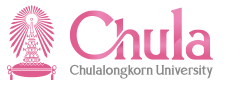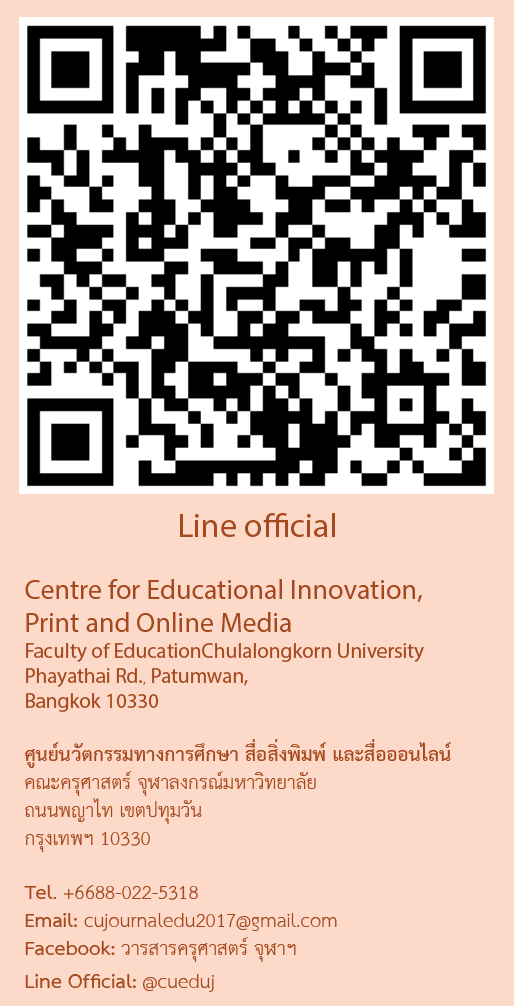Article Title
A Lifelong Education Management Model for Delveloping Work Skills of Thai Workforce for a Manufacturing Workplace(การพัฒนารูปแบบการจัดการศึกษาตลอดชีวิตเพื่อพัฒนาทักษะการปฏิบัติงานของแรงงานไทยสำหรับสถานประกอบการภาคอุตสาหกรรม)
Abstract
The purposes of this research were to: 1) analyze and synthesize Thai workforce skills at a manufacturing workplace; 2) develop a lifelong education management model in order to improve Thai workforce skills; and 3) study the factors that affect the lifelong education management model in order to improve Thai workforce skills. The research sample of the analysis and synthesis are 24 volunteers drawn from a manufacturingworkplace employing a Thai workforce of 400 people. The samples of development modelvolunteered to participate in 100 hours of activities. The results of the research were as follows:1. Thai workforce skills analysis revealed the 3 highest scores related to work skills required for the manufacturing workplace are the usage of computer and technology skills, safety operation skills, and intra-organization communication skills.2. The results further showed that three aspects of Thai workforce skills, which included knowledge, work skills, and the self-directed learning levels, increased at the statistical significance level of 0.5 as a result of the activities carried out during the study.3. The supportive factors included enthusiastic learners, roles of the instructors, self-directed learning media, and supervision of the practices. The obstacle factors of the application of the model included available time for learners? participation, activity place arrangement, learners? readiness to access to the network system, and learners? general readiness.(งานวิจัยนี้มีวัตถุประสงค์เพื่อ 1) วิเคราะห์และสังเคราะห์ทักษะการปฏิบัติงานของแรงงานไทยสำหรับสถานประกอบการภาคอุตสาหกรรม 2) พัฒนารูปแบบการจัดการศึกษาตลอดชีวิตเพื่อพัฒนาทักษะการปฏิบัติงานของแรงงานไทยสำหรับสถานประกอบการภาคอุตสาหกรรม และ 3) ศึกษาปัจจัยที่ส่งผลต่อรูปแบบการจัดการศึกษาตลอดชีวิตของแรงงานไทยสำหรับสถานประกอบการภาคอุตสาหกรรม กลุ่มตัวอย่างที่ใช้ ได้แก่ แรงงานไทยในภาคอุตสาหกรรมจำนวน 400 คน กลุ่มตัวอย่างในการพัฒนารูปแบบ คือ แรงงานไทย 24 คนที่อาสาสมัครเข้าร่วมดำเนินการทดลองจำนวน 100 ชั่วโมง ผลการวิจัยพบว่า 1. ทักษะที่แรงงานไทยในสถานประกอบการภาคอุตสาหกรรมต้องการเรียนรู้มากที่สุด 3 ด้าน คือ ทักษะการใช้เทคโนโลยีและคอมพิวเตอร์ ทักษะด้านความปลอดภัยในการทำงาน และทักษะการสื่อสารในองค์กร 2. ผลการทดลองใช้รูปแบบการจัดการศึกษาตลอดชีวิต พบว่า แรงงานไทยในสถานประกอบการภาคอุตสาหกรรมมีทักษะการปฏิบัติงานสูงขึ้นอย่างมีนัยสำคัญทางสถิติที่ระดับ.05 ทั้ง 3 ด้าน ได้แก่ (1) ความรู้ (2) ทักษะการปฏิบัติงาน และ (3) ระดับการเรียนรู้ด้วยการนำตนเอง 3. ปัจจัยที่ส่งผลต่อรูปแบบการจัดการศึกษาตลอดชีวิต ประกอบด้วย ปัจจัยสนับสนุน คือ ความสนใจใฝ่รู้ของผู้เรียน บทบาทของผู้สอน สื่อการเรียนรู้ด้วยตนเอง และการนิเทศฝึกปฏิบัติ ส่วนปัจจัยที่เป็นอุปสรรคในการนำรูปแบบไปใช้ ประกอบด้วย ระยะเวลาในการจัดกิจกรรม สถานที่ในการจัดกิจกรรม ความพร้อมของอุปกรณ์และระบบเครือข่าย และความพร้อมในการเรียนรู้ของผู้เรียน)


